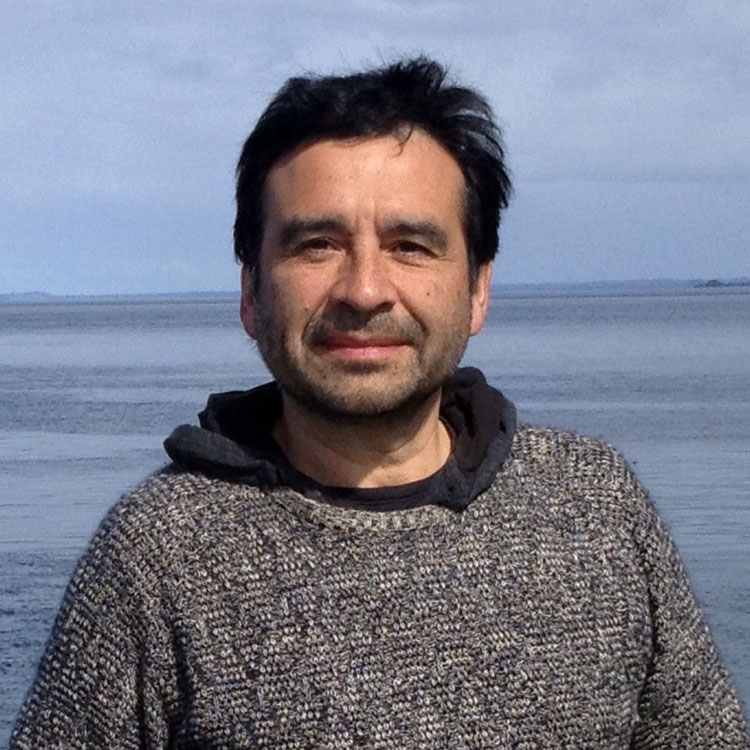
Professor Osvaldo Ulloa
Royal Society Wolfson Visiting Fellow
osqu@pml.ac.uk | +44 (0)1752 633100 (switchboard)"I am very pleased working at PML on the regulation by light and oxygen of ecosystem structure and biogeochemical cycling, and exploring the responses of oxygen-depleted ocean regions to ongoing climate change, as ocean deoxygenation is a current major threat to the status of marine ecosystems."
Osvaldo Ulloa is a Professor at the Department of Oceanography and Director of the Millennium Institute of Oceanography at the Universidad de Concepción in his native Chile. He is also a member of the Chilean Academy of Sciences.
He is currently a Royal Society Wolfson Visiting Fellow at PML, investigating the effects of deoxygenation on ecosystem structure, dynamics, and productivity in a changing ocean, combining remote sensing, optical, and molecular tools.
For the last twenty years, his research has focused on the microbial phylogenetic diversity and biogeochemistry of oxygen-depleted oceanic waters. Achievements include the discovery of new lineages of the cyanobacterium Prochlorococcus inhabiting such systems. He has recently proposed that these cyanobacteria (the most abundant photosynthetic organisms in the modern ocean) evolved in low-oxygen waters, potentially contributing to the oxidation of the ancient ocean.
His most recent work focuses on the exploration and study of ultra-deep (hadal) environments, particularly the Atacama Trench.
Long term research aspirations include gaining new understanding on how the ocean may respond to climatically driven perturbations such as deoxygenation, and on how changes happening in the upper ocean can impact the deep ocean.
- Ulloa, O., C. Henríquez-Castillo, S. Ramírez-Flandes, A. M. Plominsky, A. A. Murillo, C. Morgan-Lang, S. J. Hallam & R. Stepanauskas (2021). The cyanobacterium Prochlorococcus has divergent light-harvesting antennae and may have evolved in a low-oxygen ocean. Proceedings of the National Academy of Sciences USA, 118: e2025638118.
- Ramírez-Flandes, S. B. González & O. Ulloa (2019). Redox traits characterize the organization of global microbial communities. Proceedings of the National Academy of Sciences USA, 116: 3630–3635.
- Ulloa, O., D. E. Canfield, Edward F. DeLong, Ricardo M. Letelier & F. J. Stewart (2012). Microbial oceanography of anoxic oxygen minimum zones. Proceedings of the National Academy of Sciences USA, 109: 15996–16003.
- Canfield, D. E., F. J. Stewart, B. Thamdrup, L. De Brabandere, T. Dalsgaard, E. F. DeLong, F. J. Stewart, N. P. Revsbech & O. Ulloa (2010). A cryptic sulfur cycle in oxygen-minimum zone waters off the Chilean coast. Science, 330: 1375–1378.
- Ulloa, O., R. Escribano, S. Hormazabal, R. A. Quiñones, R. R. González & M. Ramos (2001). Evolution and biological effects of the 1997-98 El Niño in the upwelling ecosystem off northern Chile. Geophysical Research Letters, 28: 1591–1594.
- Ulloa, O., S. Sathyendranath & T. Platt (1994). Effect of the particle-size distri-bution on the backscattering ratio in seawater. Applied Optics, 30: 7070–7077.